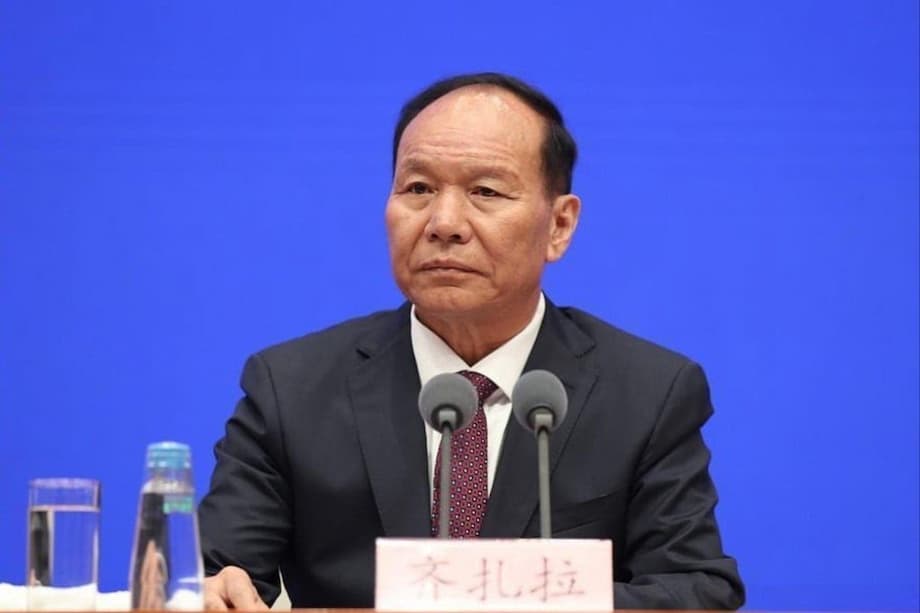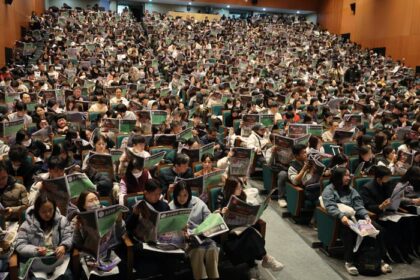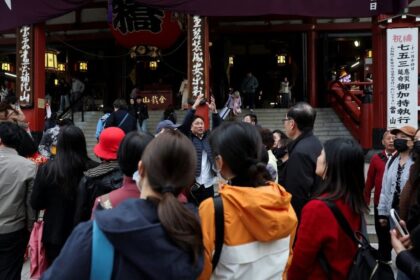China’s Anti-Corruption Campaign Reaches Ethnic Minority Officials
China’s ongoing anti-corruption campaign, a hallmark of President Xi Jinping’s leadership, has entered a new phase: senior officials from ethnic minority backgrounds are now being investigated and disciplined at an unprecedented rate. This development signals a significant shift in the Chinese Communist Party’s (CCP) approach to ethnic affairs and elite politics, challenging long-standing practices of ethnic representation and leniency in autonomous regions.
- China’s Anti-Corruption Campaign Reaches Ethnic Minority Officials
- Who Are the Officials Targeted?
- Xi Jinping’s Anti-Corruption Drive: Scope and Methods
- Assimilation and the Changing Face of Ethnic Policy
- Broader Implications: Power, Control, and Public Perception
- International Perspective and Human Rights Concerns
- In Summary
Traditionally, China’s autonomous regions—such as Tibet, Xinjiang, Inner Mongolia, Ningxia, and Guangxi—have been led by chairpersons from non-Han ethnic groups. This system was designed to promote ethnic inclusion and maintain social stability in regions with large minority populations. However, the CCP’s anti-corruption drive now appears to be eroding the special status and protections once afforded to these officials.
Who Are the Officials Targeted?
Recent months have seen a string of high-profile investigations into ethnic minority leaders:
- Qizhala, former chairman of the Tibet Autonomous Region (ethnic Tibetan), was investigated in January and later expelled from the Party.
- Lan Tianli, chairman of Guangxi Zhuang Autonomous Region (ethnic Zhuang), came under scrutiny in May.
- Liu Hui, former chairwoman of Ningxia Hui Autonomous Region (ethnic Hui), was placed under investigation in July.
- Wang Lixia, chairwoman of Inner Mongolia (ethnic Mongol), became the fourth senior official from an autonomous region to be disciplined this year.
These cases are notable because, since the 1980s, only five out of 43 regional chairs from ethnic minorities have faced such probes. The recent surge marks a clear departure from the past, when ethnicity could serve as a buffer against political discipline.
Why Is This Happening Now?
Observers and experts suggest that the crackdown on ethnic minority officials is not a targeted attack on minorities, but rather part of a broader push for political discipline and uniformity. Under Xi Jinping, the Party has emphasized the need for a unified national identity and the consolidation of a “community of the Chinese nation.” This means reducing special privileges for ethnic officials and ensuring that all cadres, regardless of background, are subject to the same standards of conduct and discipline.
As one analyst explained,
“The downfall of these officials reflects a broader push for political discipline, signaling that ethnicity-based leniency in elite politics no longer applies.”
In practice, this shift has resulted in fewer ethnic minority officials holding top political positions and an increase in Han officials overseeing ethnic affairs.
Xi Jinping’s Anti-Corruption Drive: Scope and Methods
Since taking office in 2012, Xi Jinping has made anti-corruption a central pillar of his governance. The campaign has swept through all levels of government, the military, state-owned enterprises, and even the private sector. According to official figures, more than five million people have been punished during the crackdown, with a record number of senior officials investigated in recent years.
The campaign is not limited to ethnic minority officials. High-profile figures from the finance industry, military, and business sectors have also been targeted. For example, China’s defence minister Dong Jun and several former defence ministers have come under investigation for corruption, as have prominent business leaders and “princelings”—the children of senior Party officials.
To support the campaign, China has built or expanded over 200 specialized detention centers, known as liuzhi facilities. These centers allow the National Supervisory Commission (NSC) to detain suspects for up to six months without access to lawyers or family, operating outside the traditional judicial system. While authorities argue that these measures are necessary to root out graft, human rights groups have raised concerns about abuses, lack of transparency, and the potential for political persecution.
Political Discipline and the End of Ethnic Leniency
Historically, ethnic minority officials in China could sometimes claim special circumstances or leniency due to the sensitive nature of their regions and the CCP’s desire to maintain stability. This approach was rooted in the Party’s founding principles, which emphasized respect for minority rights and cultural autonomy. For decades, minorities benefited from affirmative action policies, exemptions from certain restrictions (such as the One Child Policy), and representation in regional leadership.
However, the current anti-corruption campaign has made it clear that such exemptions are being phased out. The Party’s new approach stresses uniformity, discipline, and the primacy of a single Chinese national identity. As a result, ethnic minority officials are now just as vulnerable to investigation and punishment as their Han counterparts.
Assimilation and the Changing Face of Ethnic Policy
This crackdown on ethnic minority officials is part of a broader trend toward assimilation in China’s ethnic policy. In recent years, the CCP has shifted from promoting multiculturalism and regional autonomy to emphasizing the “blending” of ethnic differences and the creation of a unified national identity. This shift is reflected in official documents, speeches, and policy initiatives.
For example, a 2021 Party resolution on history explicitly endorsed the current approach to “nationalities work,” calling for extensive contact, interaction, and blending among different nationalities. The resolution also reaffirmed Xi Jinping’s agenda and enshrined his position in the Party’s history.
In practice, this assimilationist policy has led to:
- Mass internment and re-education campaigns in Xinjiang targeting Uyghur Muslims and other groups
- Restrictions on the use of minority languages in regions like Inner Mongolia
- Efforts to “China-ify” religion, including tighter controls on Tibetan Buddhism and Christianity
- Declining representation of ethnic minorities in top political bodies and key ministerial positions
While the Party continues to pay lip service to regional autonomy and minority rights, the reality is a steady erosion of these protections in favor of centralized control and assimilation.
Impact on Minority Representation and Rights
The decline in ethnic minority representation at the highest levels of government has significant implications. With fewer minority officials in positions of power, there is less advocacy for minority rights and interests within the Party. Key positions overseeing ethnic affairs are increasingly filled by Han officials, further reducing the influence of minority voices.
According to Freedom House, ethnic, religious, and other minority groups in China have “no meaningful political representation.” The government’s policies in regions like Xinjiang, Tibet, and Inner Mongolia have included demographic engineering, forced labor, restrictions on language and religion, and the separation of children from families. These measures, combined with the anti-corruption campaign, have left minority communities with little recourse or protection.
Broader Implications: Power, Control, and Public Perception
Xi Jinping’s anti-corruption campaign has been praised by some for addressing systemic corruption and cleaning up the Party. However, critics argue that it also serves as a tool for consolidating power, eliminating political rivals, and enforcing loyalty. The campaign’s methods—such as secretive detentions, lack of legal oversight, and harsh interrogations—have drawn widespread condemnation from human rights groups and legal experts.
The expansion of the liuzhi detention system and the targeting of a wide range of public sector workers, entrepreneurs, and even foreign business executives illustrate the campaign’s reach. The crackdown has created a climate of fear among officials, with many adopting a “lying flat” attitude—doing the bare minimum to avoid risk and scrutiny. This has led to concerns about reduced creativity, risk-taking, and effective governance.
Public cynicism about the campaign is also growing. Despite the high number of officials punished, many Chinese citizens doubt the effectiveness of the crackdown and question whether it truly addresses the root causes of corruption. The lack of independent oversight, transparency, and systemic reforms means that the Party continues to police itself, with little accountability to the public.
International Perspective and Human Rights Concerns
China’s anti-corruption campaign and its impact on ethnic minorities have attracted international attention and criticism. Rights groups such as Safeguard Defenders have documented abuses in the liuzhi system, including physical and psychological pressure on detainees, forced confessions, and lack of legal protections. The campaign’s selective enforcement and use as a political tool have raised concerns about due process and the rule of law.
Foreign businesses and investors are also watching closely, as several foreign executives have been implicated in corruption probes. The campaign’s unpredictability and opacity have contributed to an uncertain business climate and heightened concerns about political risk in China.
In Summary
- China’s anti-corruption campaign under Xi Jinping has expanded to target senior officials from ethnic minority backgrounds, ending decades of relative leniency.
- This shift reflects a broader move toward political discipline, uniformity, and assimilation, with declining minority representation in top political bodies.
- The campaign is supported by an extensive network of specialized detention centers and harsh disciplinary measures, raising human rights concerns.
- While the crackdown aims to address systemic corruption, critics argue it also serves to consolidate power and suppress dissent, with limited transparency or accountability.
- Ethnic minority communities face reduced political influence and protection, as the Party prioritizes a unified national identity over multiculturalism and regional autonomy.
- International observers and rights groups have raised alarms about abuses, lack of due process, and the broader implications for civil liberties and governance in China.












